
Business Kick-Starter Guides
How to Start an Online Boutique in 2025? [Simple 10 Steps Guide]
Coming up with the perfect formula for starting and running an online boutique will always be the topic of discussion...
Shopify vs. BigCommerce: Which one is better for dropshipping in 2025?
eCommerce

Shopify and BigCommerce are two mega-popular options for building eCommerce stores, each with its own set of tools, strengths, and limitations.
With that being said, it might be difficult to decide which platform is better for starting a dropshipping business.
Then, let’s compare the advantages and disadvantages as well as features of both platforms and see which one will outweigh the other.
What will we compare?
Check out: How to start dropshipping on Shopify?
Check out: How to start dropshipping on BigCommerce?
Both Shopify and BigCommerce have a good offer of basic web-building features that cater to the needs of dropshipping businesses. Whether you prioritize a user-friendly interface, multiple payment gateways, or advanced SEO optimization, both platforms have something to offer.
When it comes to design, Shopify stands out with its vast collection of visually appealing templates.
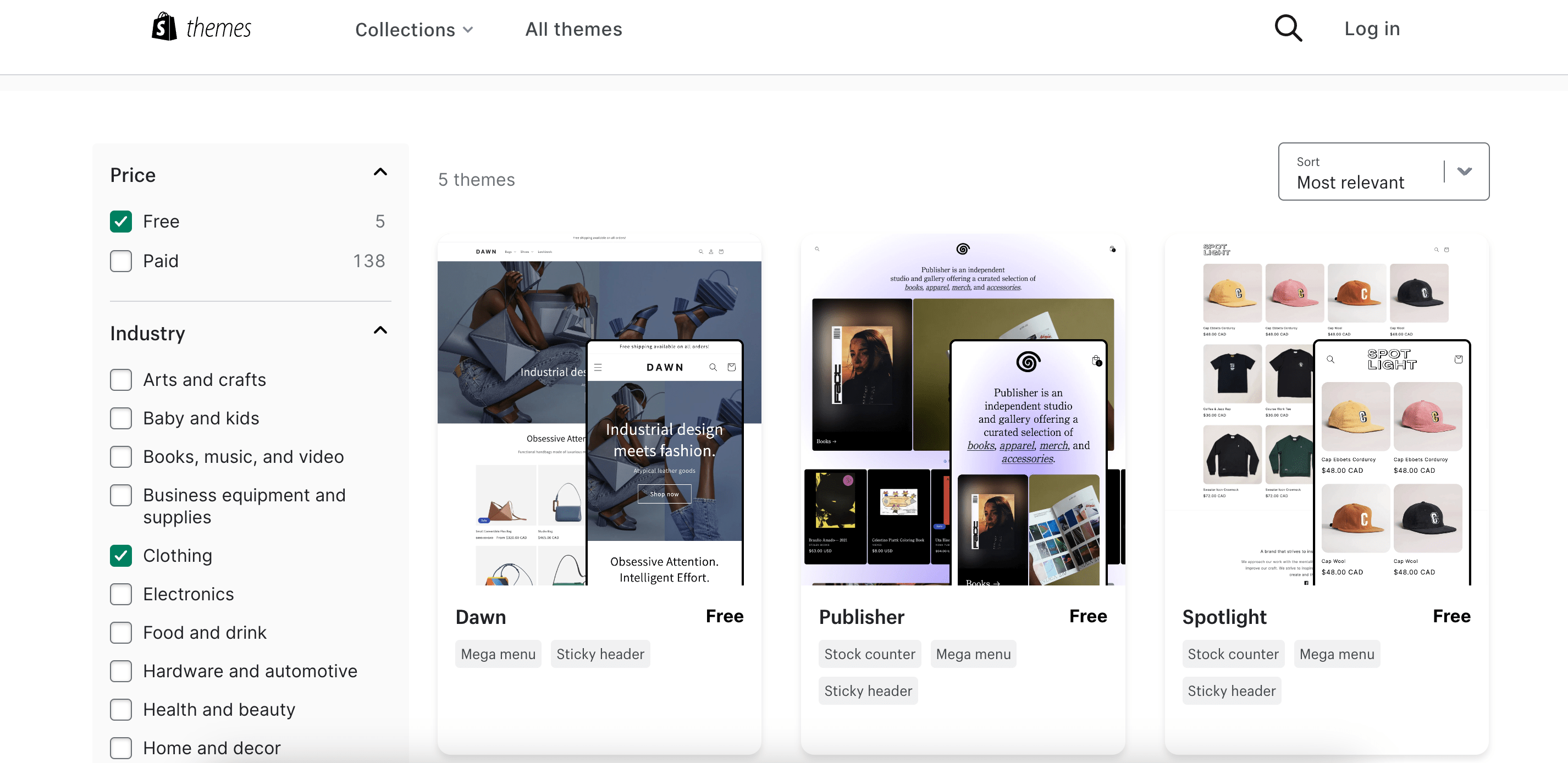
BigCommerce also offers a range of intuitive themes that can be customized without any technical expertise.
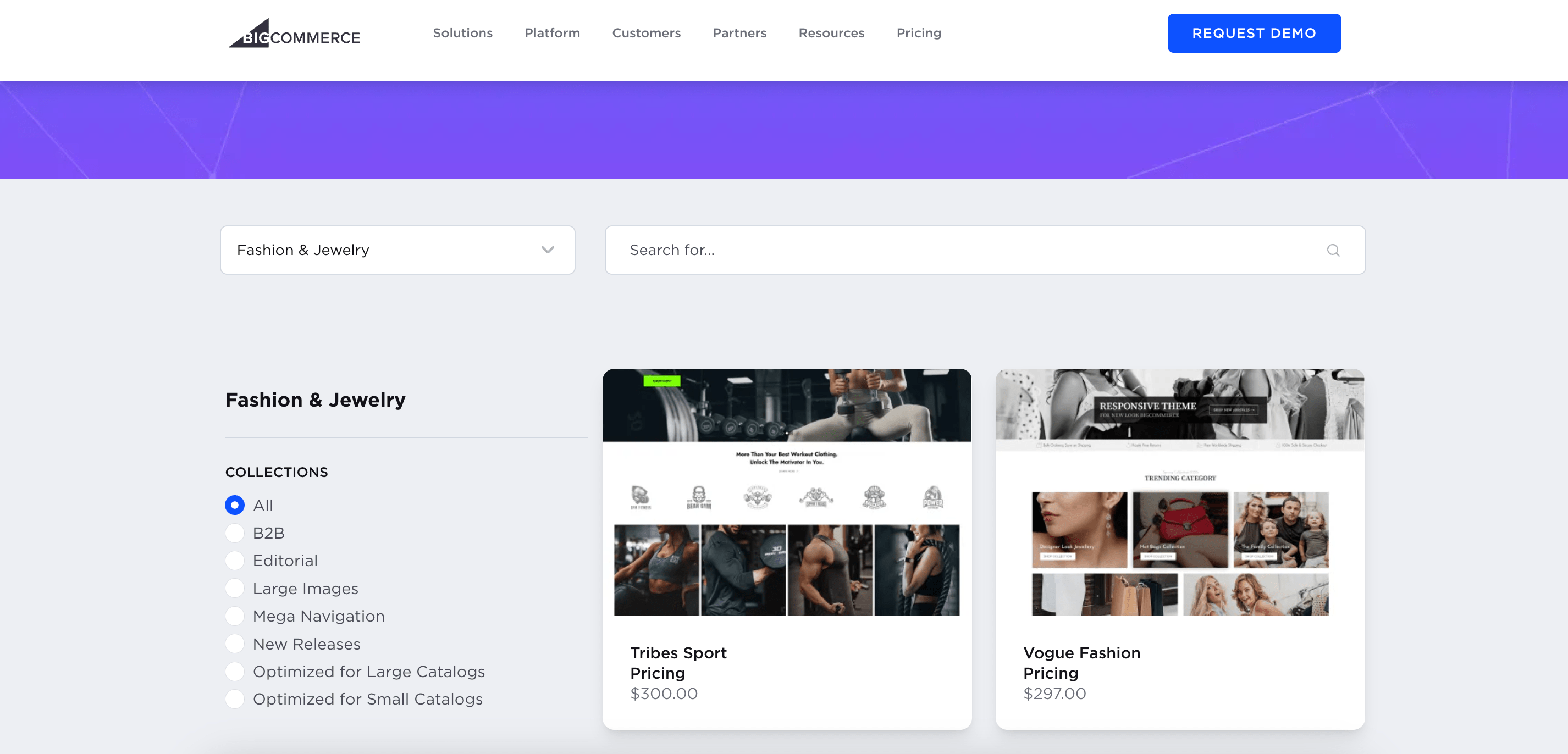
Shopify’s paid themes might be slightly more expensive than those of BigCommerce. However, both platforms offer free templates as well as tools to create a fully customized storefront.
Shopify offers three main plans: Basic Shopify, Shopify, and Advanced Shopify. These are designed to accommodate businesses of all sizes, from small startups to large enterprises.
Basic plan:
Shopify plan:
Advanced plan:
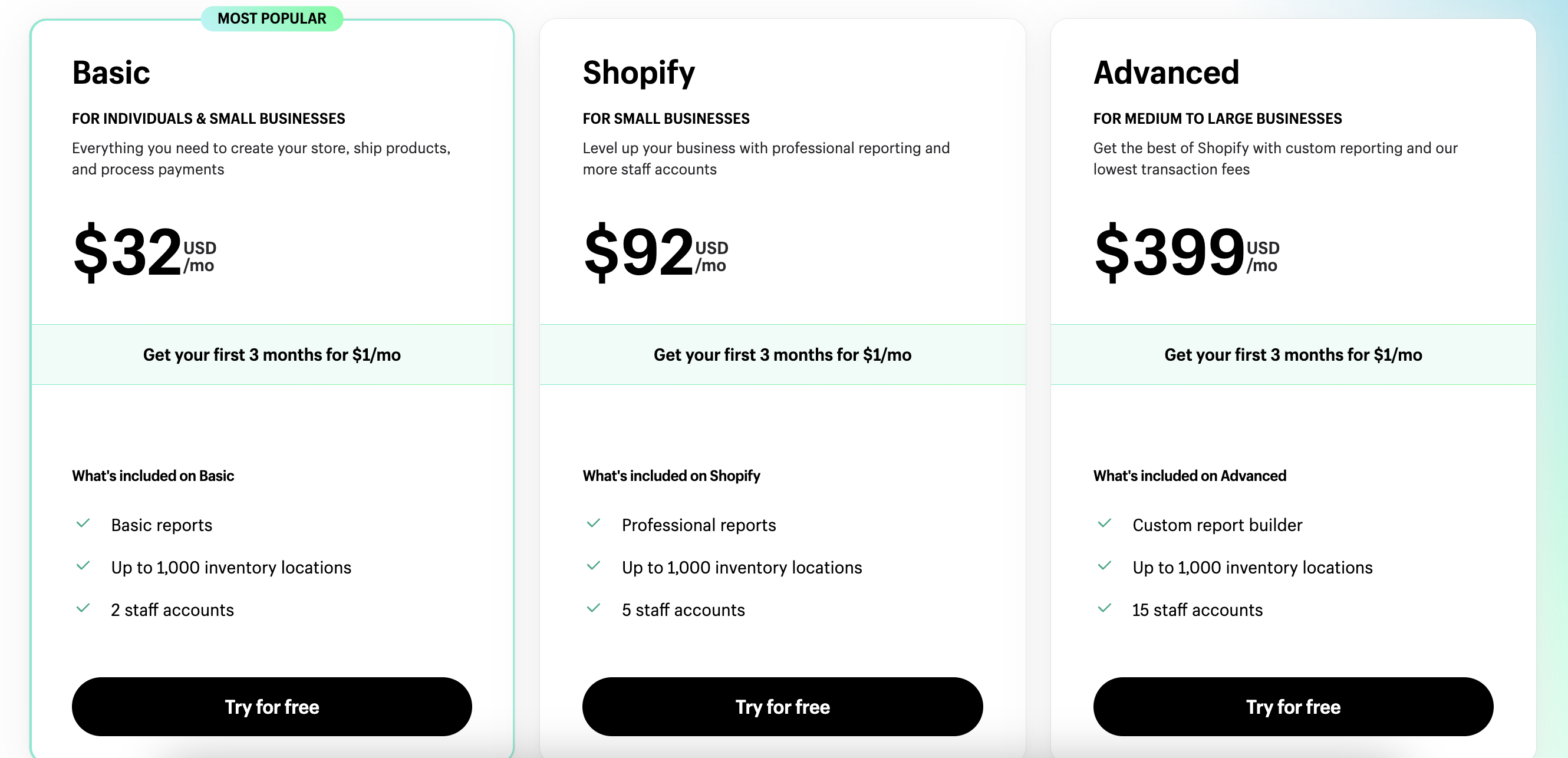
BigCommerce also offers a range of plans to suit different business needs. Let’s explore the pricing options available:
Standard:
Plus:
Pro:
Enterprise:
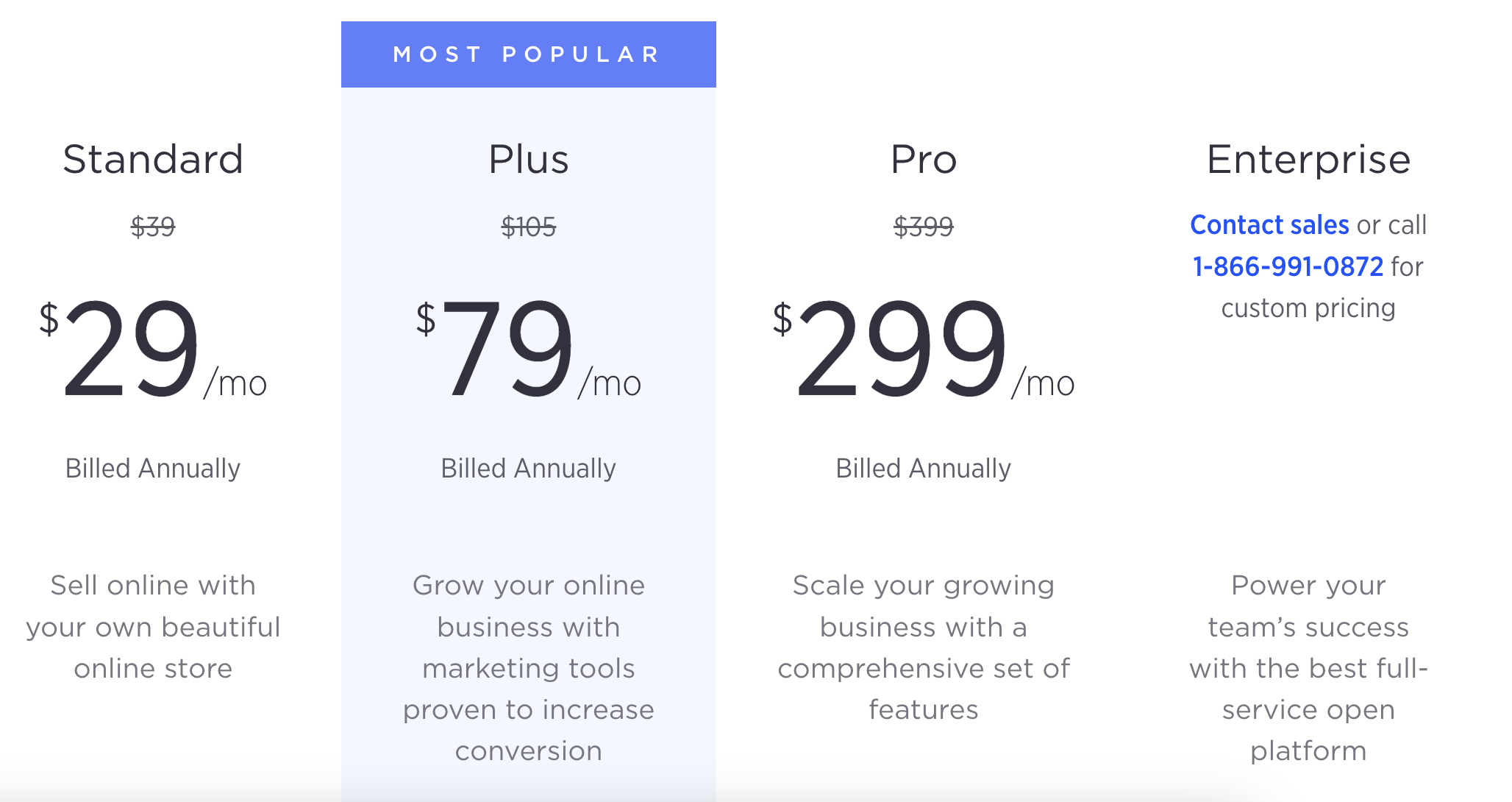
BigCommerce’s pricing plans are slightly on the more expensive end. Nevertheless, both platforms offer plans that can cater to the needs of businesses in different growth stages.
Shopify users can benefit from over 8,000 different types of extensions available in the Shopify App Store.
You can find apps for social media, email marketing, analytics, product reviews, customer service, SEO, and many more.
For instance, apps like Firepush can help you create retargeting marketing campaigns, Sixads assist you in running ads on Google and social media, while Google Shopping Feed optimizes your product feeds across Instagram, Facebook, TikTok, Pinterest, Google, and Bing.
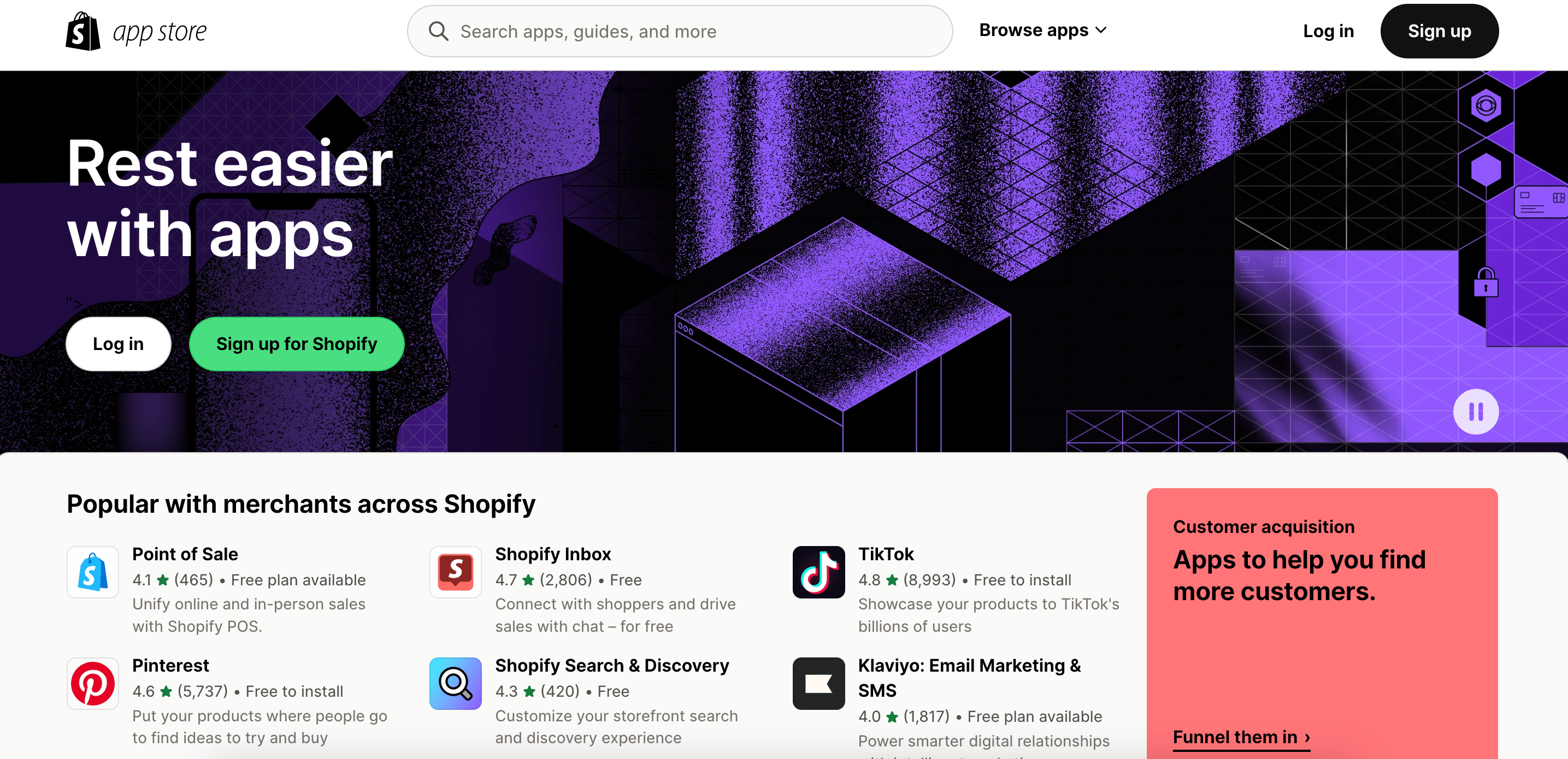
Similarly, BigCommerce’s App Marketplace offers a wide selection of apps for financing, payments, CRM, marketing, AI, and more.
You can find apps like Google Analytics, which provides in-depth insights into your website’s performance, Yotpo, which allows you to collect and display customer reviews, and LiveChat, which allows you to engage with visitors in real time.
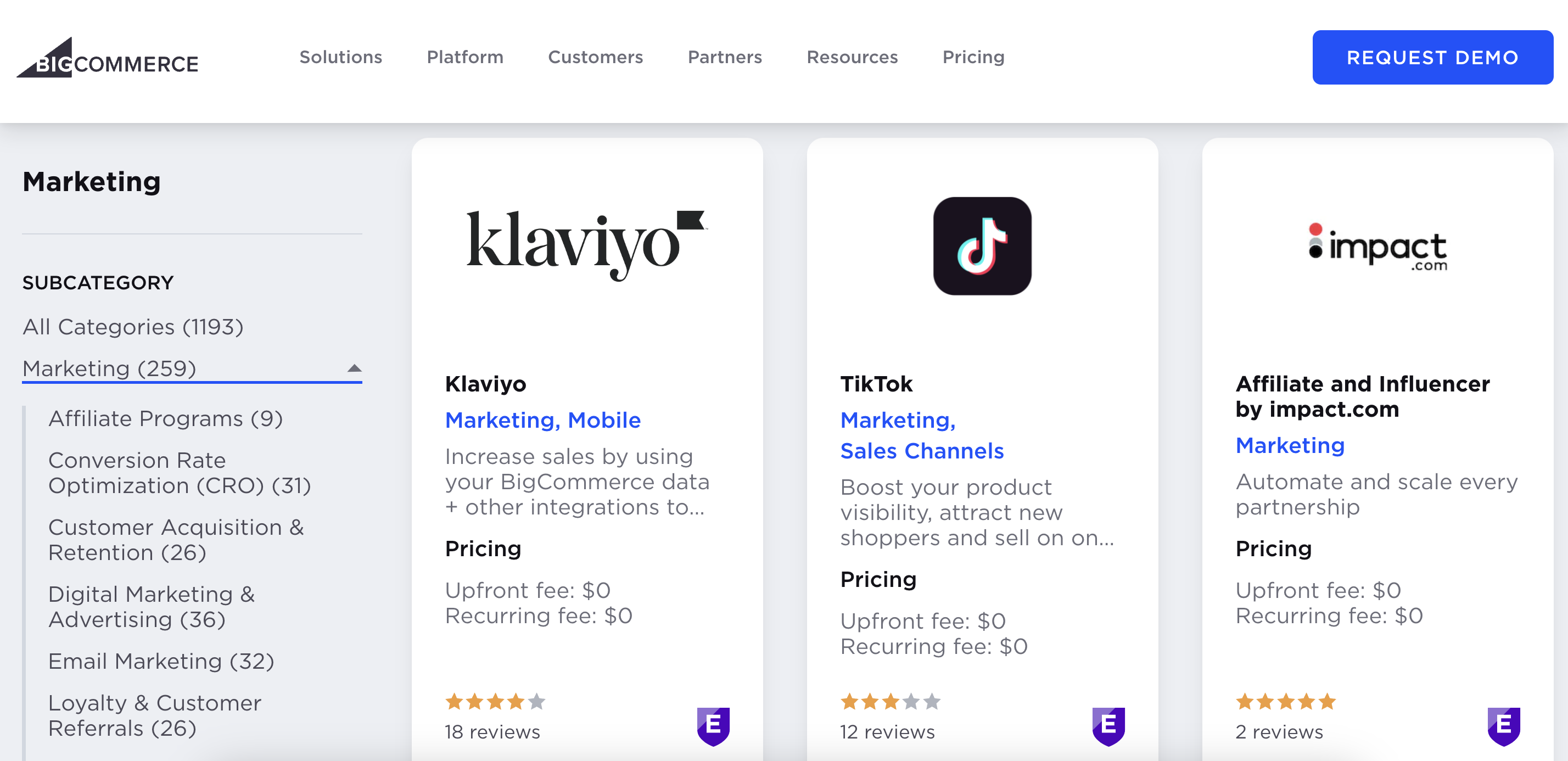
Shopify’s app library is much richer in third-party extensions. Despite that, whether you’re looking to improve marketing strategies or optimize customer experience, you can find the right apps to meet your needs in both respective app marketplaces.
Shopify assists in enhancing your store’s visibility on search engines by providing you with:
Check out: Best SEO practices for Shopify stores
BigCommerce offers almost the exact same features:
Both Shopify and BigCommerce offer dropshippers built-in SEO tools, free resources, as well as a variety of apps they can install for additional costs.
One of the major advantages of using Shopify is that Shopify handles all of your hosting requirements. This means you don’t have to worry about managing servers or dealing with complicated technical issues.
But what exactly does Shopify’s hosting entail? Well, for starters, you can either buy your domain name directly from Shopify or use an already existing one.
Furthermore, Shopify provides excellent security measures to protect your store and customer data by offering a free SSL certificate.
BigCommerce also offers a reliable hosting service option with SSL certificates, making sure your store is well-guarded.
Like Shopify, BigCommerce also allows you to choose between setting up a new domain name right from your store’s dashboard or using one you’ve bought from a third party.
Both Shopify and BigCommerce offer equally reliable hosting solutions that can support your dropshipping store.
Shopify’s user-friendly interface makes it easy for users of all levels of technical expertise to set up and manage their stores, especially for beginners in dropshipping.
From a built-in hosting solution to a convenient drag-and-drop editor, Shopify allows dropshippers to set up their online stores within minutes.
If you still find yourself experiencing some issues, Shopify offers 24/7 customer support via live chat, phone, and email. They also have an extensive help center with detailed articles and video tutorials that cover various aspects of the platform.
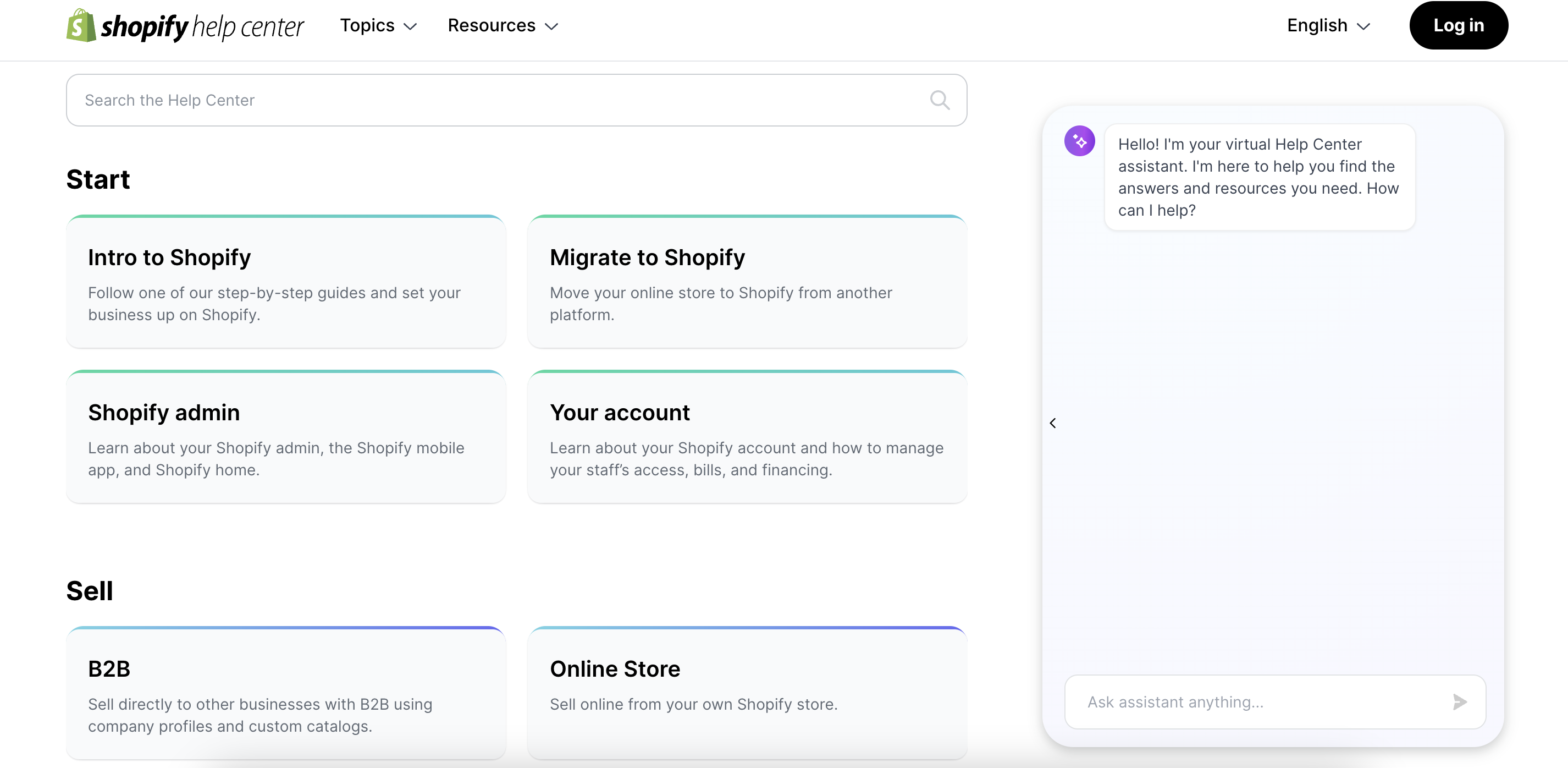
Similarly, BigCommerce is renowned for its user-friendly interface, making it an excellent choice for dropshipping beginners as well.
With a clean and organized dashboard, you can effortlessly navigate through various settings and create an eCommerce store quickly and easily.
BigCommerce goes the extra mile in providing step-by-step tutorials and guides to help you make the most of their platform.
Responsive customer support is another area where BigCommerce shines. Their support team is readily available to assist you at any time. Additionally, they offer a dedicated account manager for enterprise-level businesses, ensuring that you receive personalized assistance when needed.
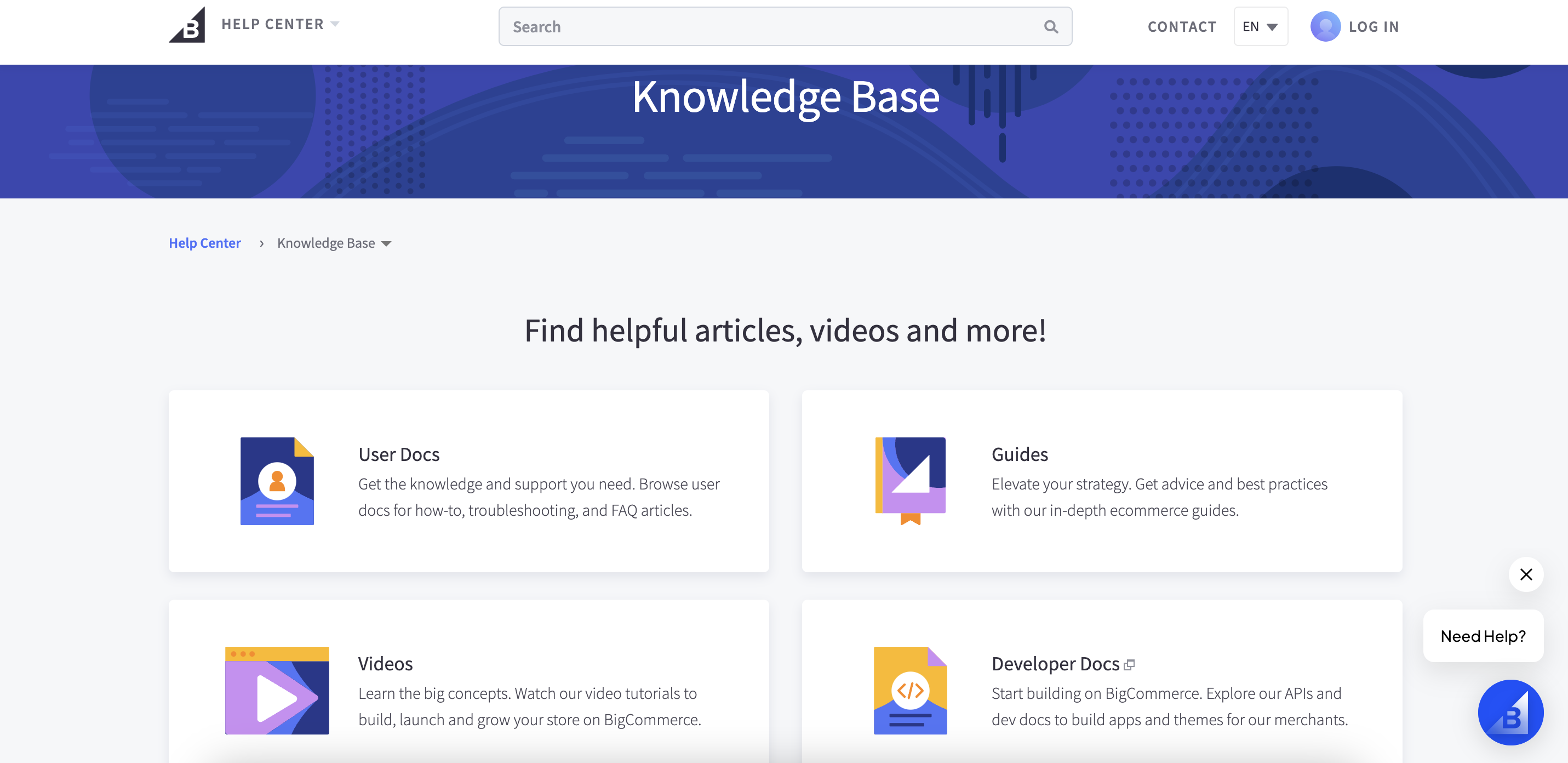
Both Shopify and BigCommerce offer user-friendly interfaces that cater to dropshipping beginners and let you have all the necessary tools and assistance at your disposal.
Pros
Cons
Pros
Cons
Sure, a great web-building eCommerce software can give you impressive tools to build an insanely stunning and functional online store but what can’t do is supply it with dropshipping winning products.
So, here’s what you can do – you partner with a dropshipping supplier that happens to offer both the latest trending products and a plugin for your eCommerce platform of choice.
You’re in luck because BrandsGateway supports dropshippers on Shopify as well as on BigCommerce and provides a dropshipping service that includes:
To start dropshipping with BrandsGateway all you need to do is download the BrandaGateway Shopify App from Shopify’s app marketplace and complete the integration in 5 easy steps:
For BIgCommerce users, the process is quite similar – dropshippers need to access BrandsGateway’s app for BigCommerce and from there, follow these steps:
| Platform | Shopify | BigCommerce |
|---|---|---|
| Main features | • Multiple staff accounts • Web hosting • Blogging platform • Diverse sales channels • Extensive payment gateways • Customizable shipping rates • Automatic currency conversion • Multiple languages • Marketing tools | • Unlimited staff accounts • Integrated hosting service • Store customization • Blogging feature • Secure payment processing • Optimized for mobile users • Compatibility with third-party apps • Support for multiple currencies • Marketing and SEO tools |
| Pricing plans | • Basic Shopify: $32/month • Shopify: $92/month • Advanced Shopify: $399/month | • Standard: $39/month • Plus: $105/month • Pro: $399/month • Enterprise: Custom pricing |
| Design | • 100+ visually appealing templates • Pricing starts at $300 • Free options available • Mobile-friendly designs • Fully customizable without coding | • 100+ free and paid templates • Paid themes start at around $200 • Code editing available for customization • Drag-and-drop editor for non-coders |
| Third-party extentions | • 8,000+ apps in Shopify App Store • Extensive variety of apps including for social media, email marketing, analytics, SEO, and more | • Apps for financing, payments, CRM, marketing, AI, and more in the BigCommerce App Marketplace |
| SEO tools | • Built-in SEO features • Auto-created sitemap • SEO third-party extensions available • Complimentary SEO tutorials | • Built-in SEO tools • SEO guides • SEO apps available in the BigCommerce App Marketplace |
| Hosting solutions | • Buy domain directly from Shopify or use existing one | • Buy domain directly from BigCommerce or use existing one |
| Ease of use | • User-friendly interface • 24/7 customer support • Help center with infromative articles and video tutorials | • User-friendly interface • Step-by-step tutorials • Responsive customer support • Dedicated account manager for enterprise-level businesses |
Unfortunately, we can’t make the choice for you. Fortunately, we can vouch for both platforms!
Shopify is a great option if you’re new in dropshipping and don’t have a clue on how to create and launch an eCommerce store. BigCommerce is friendly for beginners as well but might need the help of a developer for certain tasks.
With both platforms offering tree trials, you are free to experiment and see which one will ultimately be the best platform for your business.
So, carefully go through your budget, business plans and requirements, and long-term goals before deciding which platform is better for your dropshipping store.
There is no definitive answer to whether Shopify or BigCommerce is better for dropshipping. If you’re just starting out and prefer a beginner-friendly platform with a wide range of apps and support options, Shopify may be the better choice. On the other hand, if you have a larger dropshipping business and require more advanced features like an unlimited number of staff accounts, then BigCommerce would be the option for you.
BigCommerce is well-suited for new dropshipping business owners and those with already growing online stores who wish to scale their businesses even more.
What is dropshipping?